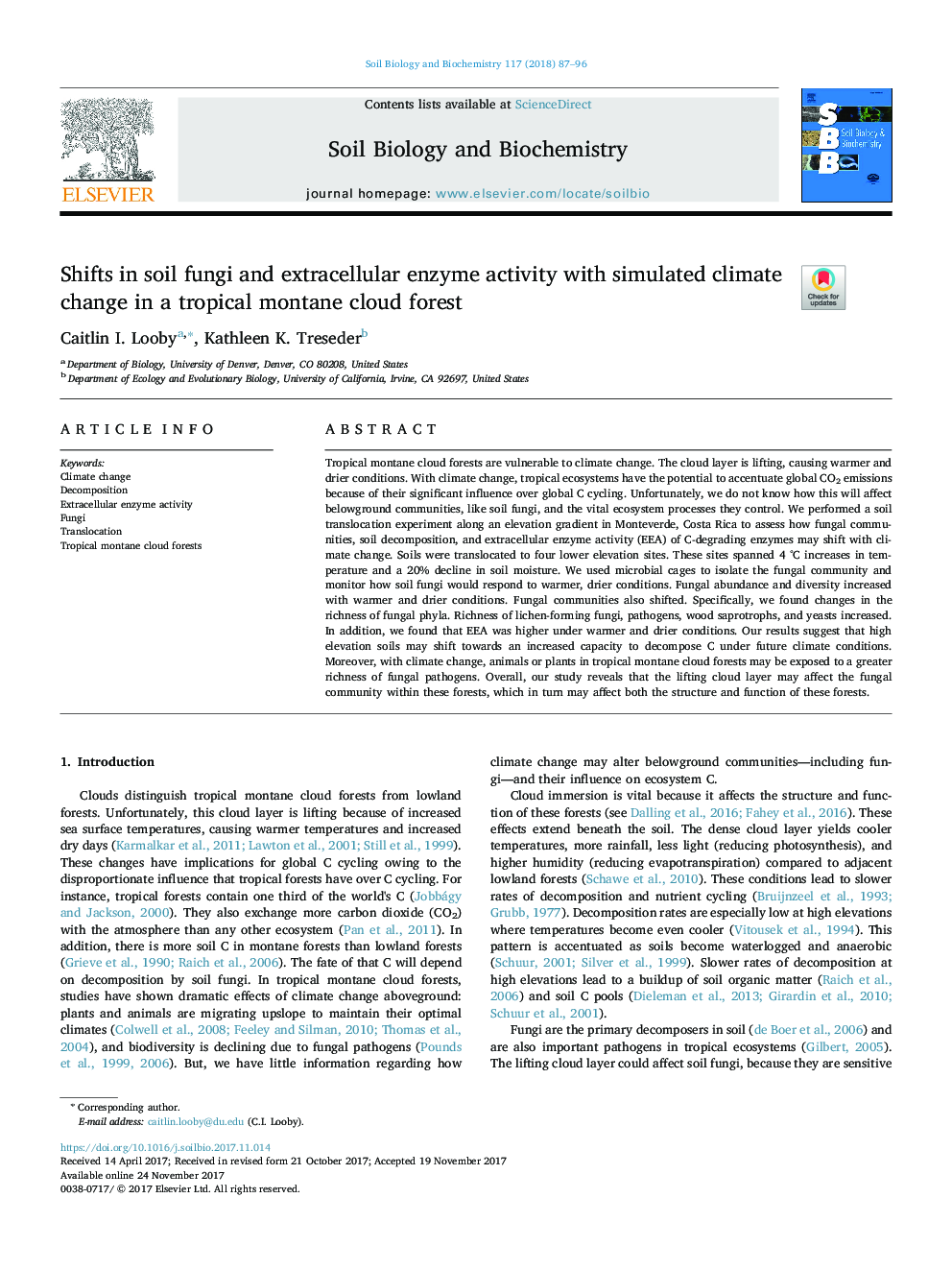| Article ID | Journal | Published Year | Pages | File Type |
|---|---|---|---|---|
| 8363078 | Soil Biology and Biochemistry | 2018 | 10 Pages |
Abstract
Tropical montane cloud forests are vulnerable to climate change. The cloud layer is lifting, causing warmer and drier conditions. With climate change, tropical ecosystems have the potential to accentuate global CO2 emissions because of their significant influence over global C cycling. Unfortunately, we do not know how this will affect belowground communities, like soil fungi, and the vital ecosystem processes they control. We performed a soil translocation experiment along an elevation gradient in Monteverde, Costa Rica to assess how fungal communities, soil decomposition, and extracellular enzyme activity (EEA) of C-degrading enzymes may shift with climate change. Soils were translocated to four lower elevation sites. These sites spanned 4 °C increases in temperature and a 20% decline in soil moisture. We used microbial cages to isolate the fungal community and monitor how soil fungi would respond to warmer, drier conditions. Fungal abundance and diversity increased with warmer and drier conditions. Fungal communities also shifted. Specifically, we found changes in the richness of fungal phyla. Richness of lichen-forming fungi, pathogens, wood saprotrophs, and yeasts increased. In addition, we found that EEA was higher under warmer and drier conditions. Our results suggest that high elevation soils may shift towards an increased capacity to decompose C under future climate conditions. Moreover, with climate change, animals or plants in tropical montane cloud forests may be exposed to a greater richness of fungal pathogens. Overall, our study reveals that the lifting cloud layer may affect the fungal community within these forests, which in turn may affect both the structure and function of these forests.
Related Topics
Life Sciences
Agricultural and Biological Sciences
Soil Science
Authors
Caitlin I. Looby, Kathleen K. Treseder,
